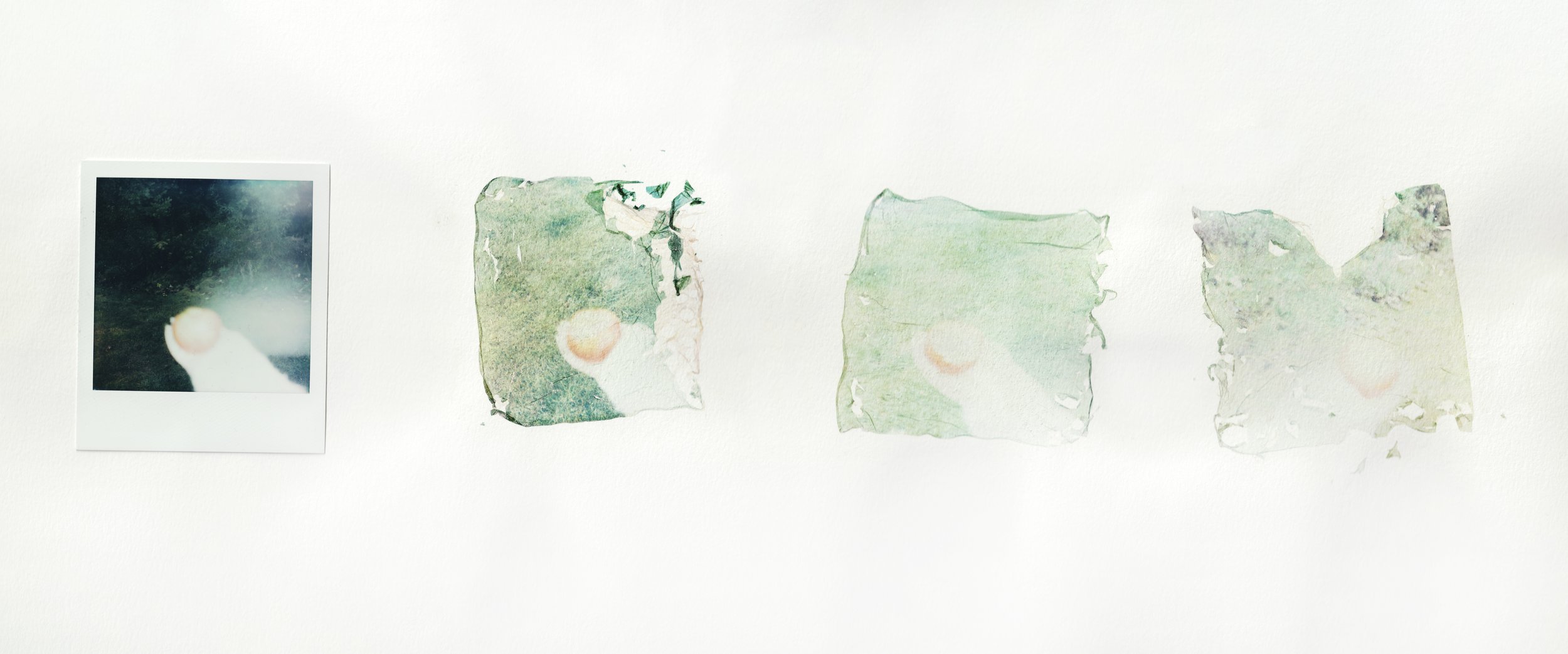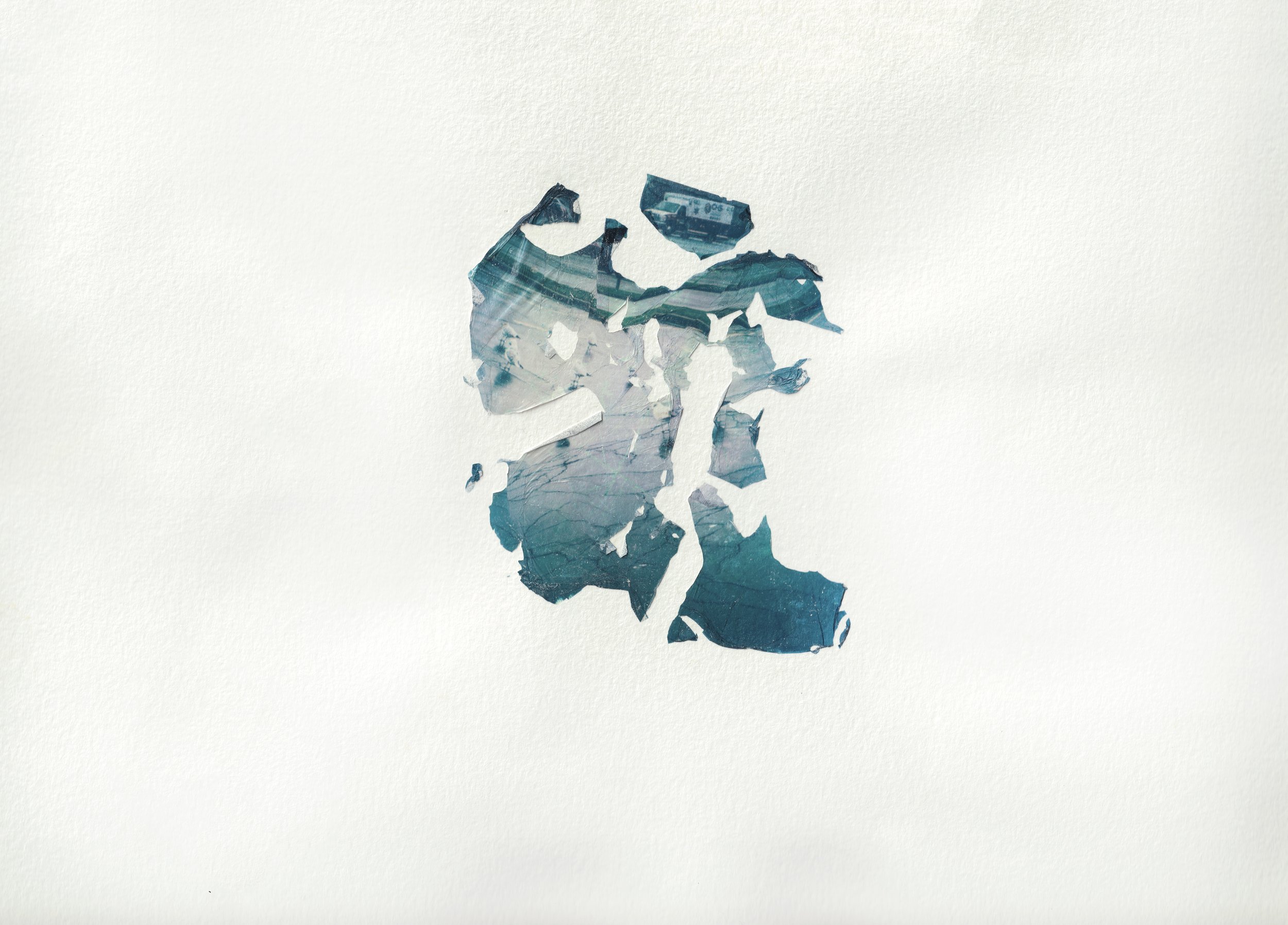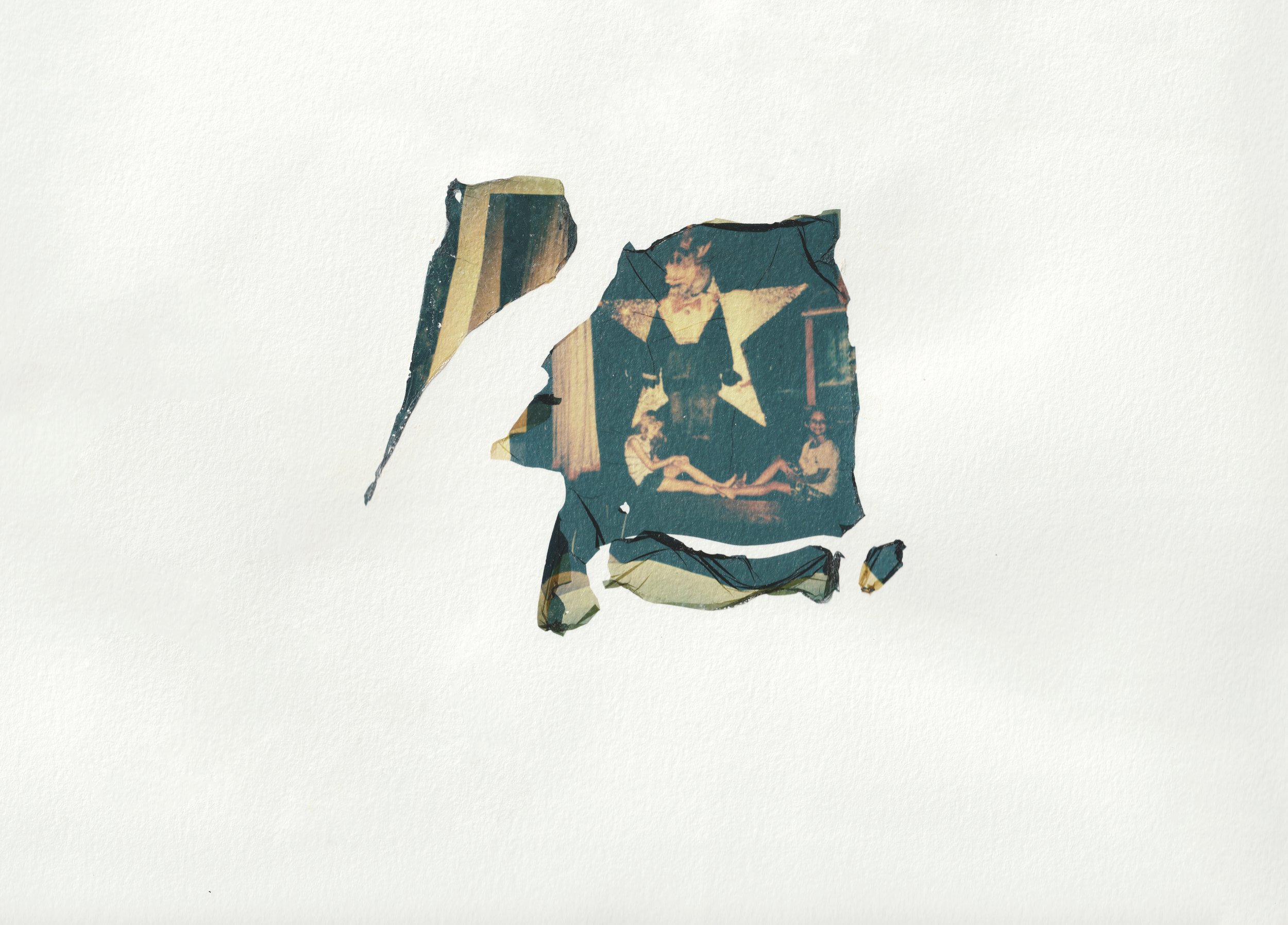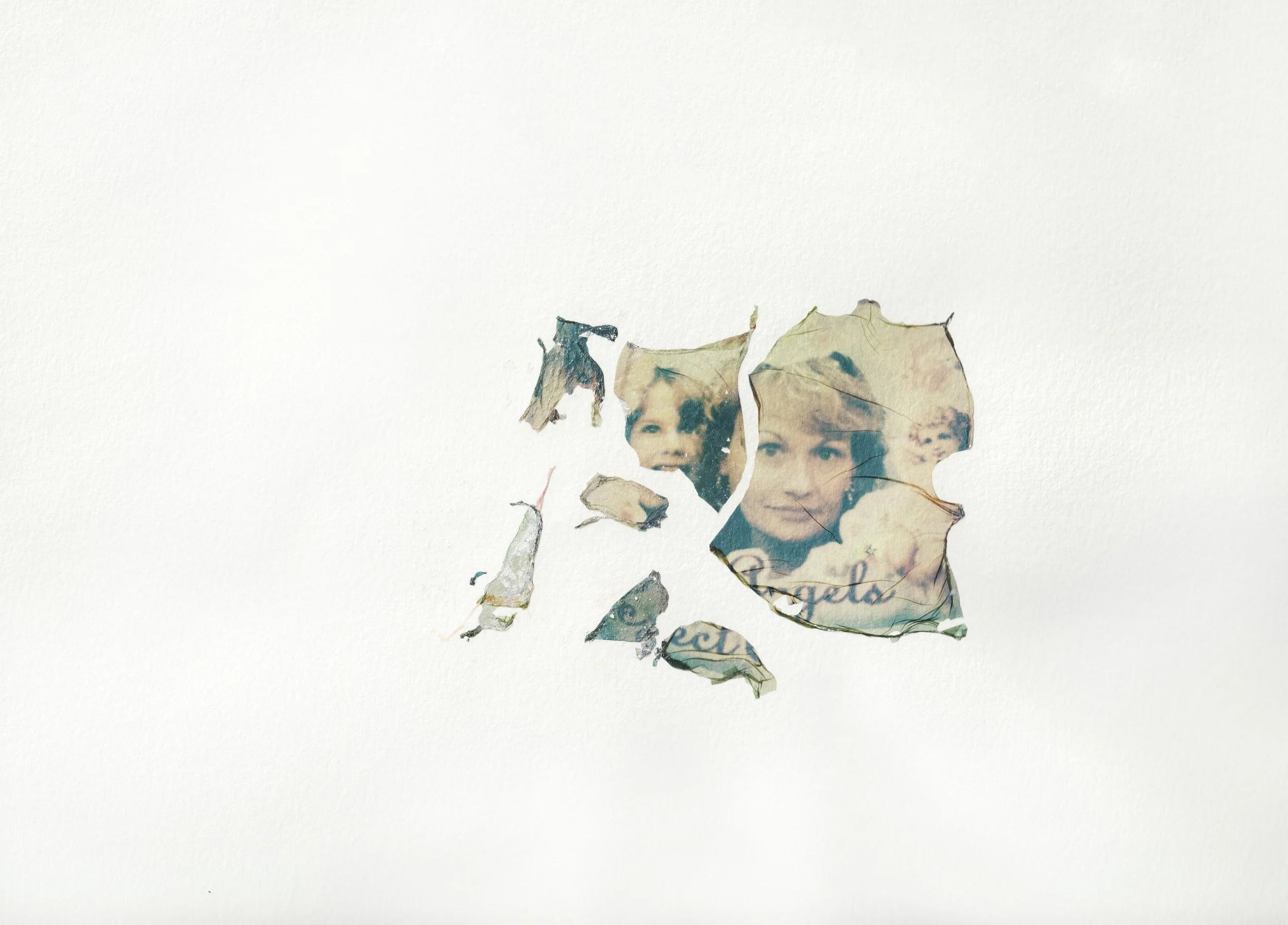Mom, I don’t want to grow up
The memories are part of our life between childhood and adulthood that we tend to forget or remember. They could be destroyed or desperate to save by putting the emulsion lifts on the watercolor paper and connecting them, even if they look faded or damaged. Polaroid photographs are the part of the processing that gives the sense of something real and raw instead of using a fancy camera to capture it. I love how they came out; they did not have to be perfect yet imperfect. I love how Polaroid photographs are used as mixed media by cutting, destroying, painting, and doing whatever I desire. I often express the voice through the hands that create and make things that speak something that only appears in the conversation if it shows in the art.
“Mom, I don’t want to grow up,” I used to say to my mom when I was a little girl because I did not want to grow up and be apart from my family. I was afraid I would forget the importance of the family, especially the memories I had carried while growing up with my family and friends. Even little beautiful things surround me, such as my family pictures, sunflowers, a blue sky with no clouds, and my little star stickers. Mom would say memories that may be forgotten or faded, but they would be found again in the light.
The expression “Mom, I don’t want to grow up” captures what makes Polaroid photographs unique. It allowed me to experiment with the emulsion lifted from a polaroid that gives an immutable symbol of cherished things. The emulsion lift is easily fragile and damaged, like the symbol of destruction on the watercolor paper, showing the memories would fade through the growth period. The emulsion lifts' destruction or “destroy” looks represent the memories' fade, how quickly they disappear through the growing up phase, and the passage of time. The prospect of growing up scares many people because of how they hold their dear loved ones, who will either be left behind or forgotten while growing up.

















